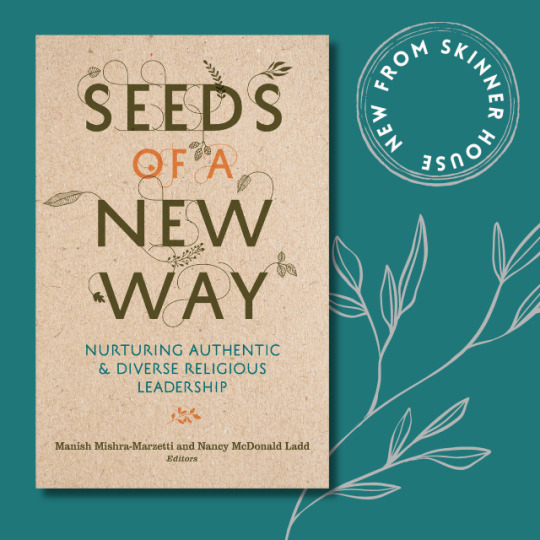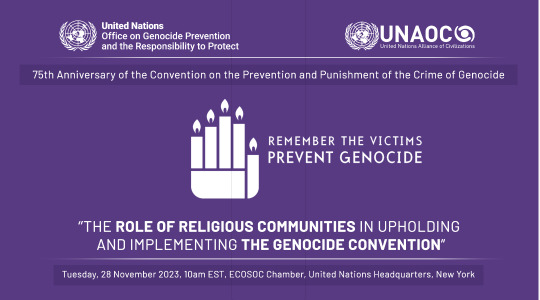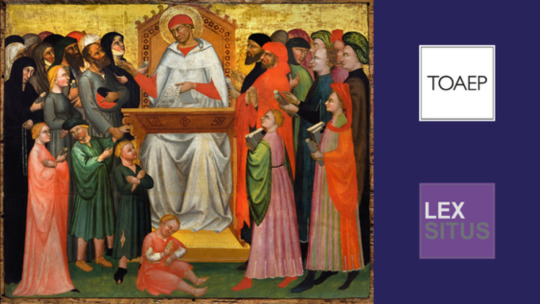#religious leaders
Note
How about JauneXSienna Khan?
Years ago I read a fanfic (Fanfiction.net) about that ship and although it had its inconsistencies, I liked it.

Tadaa! Religious Leaders!
116 notes
·
View notes
Text
It really creeps me out when pastors are like "If God weren't real then it'd be okay to torture innocent babies for fun" because this implies that
a) It's okay to torture guilty (???) babies for fun
b) it's okay to torture innocent babies if it's not just for fun
c) they feel the compulsion to torture babies and the only thing stopping them is their belief in a god
9 notes
·
View notes
Text

ZOROASTER, as many say, was the same as the son of Noah named Ham. He was the first king of the Bactrians, and the first inventor of the arts of magic, and the seven liberal arts, and the courses of the sky and the stars. There are those who will report that he laughed as he was born. This should not be taken as a good omen; common people wail while being born. And so he was conquered by Ninus, and Ninus was also struck by an arrow; he died of this wound, leaving behind his son and heir, who was named Ninias. Ninus built the city of Nineveh, which took three days to walk around, and which Cyrus, King of the Assyrians, destroyed. Augustine, City of God, book 21, chapter 4; Eusebius; Pliny, book 30, chapter 7.
#zoroaster#ham#prima pars#biblical figures#rulers#religious leaders#augustine#eusebius#pliny the younger
5 notes
·
View notes
Photo

June 12, 2023 – John 11:51-52
51 He answered them, “The Man who healed me and gave me back my strength was the One who said to me, ‘Pick up your pallet and walk.’”
52 They asked him, “Who is the Man who told you, ‘Pick up your pallet and walk’?”
Amplified Bible
#miracle#healing#healed man#questioning#religious leaders#John 11:51-52#Gospel of John#New Testament#AMP#Amplified Bible#The Lockman Foundation
20 notes
·
View notes
Text
A question of hypocrisy
“If you are convinced that you are a guide for the blind, a light for those who are in the dark, an instructor of the foolish, a teacher of little children, because you have in the law the embodiment of knowledge and truth -- you, then, who teach others, do you not teach yourself?
You who preach against stealing, do you steal? You who say that people should not commit adultery, do you commit adultery? You who abhor idols, do you rob temples? You who boast in the law, do you dishonor God by breaking the law?”
- Romans 2:19-23 NIV (2011)
#bible verse#christianity#scripture#hypocrisy#the law#obedience#two faced#religious leaders#role models#teachers#leaders#knowledge#preaching#ministry#Ten Commandments#disobedience#romans 2#new international version
17 notes
·
View notes
Note
Saw your photo post of Pope Benedict XVI and wanted to know if you know any books about him to share?
You know, I've always had at least a passing interest in Papal history, but what really got me fascinated in the history of the institution and its leaders and traditions was when Pope John Paul II died in 2005. I couldn't stop watching coverage of his funeral and, especially, the Conclave because neither of those things had ever happened in my lifetime. I'm not even Catholic -- or religious! -- but there I was hooked by the combination of majesty and mystery with the whole deal.
Then-Cardinal Ratzinger was the leading figure of the funeral ceremonies for John Paul II prior to that Conclave and he went into the Conclave as the leading candidate among the Papabile, so it was not surprise when he was quickly elected and became Pope Benedict XVI. Because of all that, I ended up with a lot of books about Pope Benedict (long since surpassed by the library of Pope Francis books I now have), and even quite a few books written by Benedict XVI. Unless you're really into learning about his theological philosophy, I'd skip most of the books that Ratzinger/Benedict wrote. The exception would probably be Pope Benedict XVI's encyclicals: God Is Love (Deus Caritas Est), Saved In Hope (Spe Salvi), and Charity In Truth (Caritas in Veritate), which I do find interesting. Plus, the Ignatius Press of San Francisco publishes each of the encyclicals in gorgeous little volumes that are nice to collect. Benedict was also working on another encyclical when he resigned in 2013 -- The Light of Faith (Lumen Fidei) -- which was completed and released by Pope Francis, but credited as the work of "four hands" and considered the only encyclical co-written by two Popes.
However, when it comes to the Popes, I've always been more interested in the biographical than ecclesiastical, and there is no shortage of great biographies about Benedict XVI. Elio Guerriero's 2018 biography, Benedict XVI: His Life and Thought (BOOK | KINDLE) is excellent. But the very best books about Pope Benedict are those written by Peter Seewald, who basically ended up as Benedict's official biographer and had incredible access to the German Pope. Seewald's 2008 book, Benedict XVI: An Intimate Portrait, is a solid starting place and takes you about halfway through his pontificate. Benedict XVI: Last Testament: In His Own Words (BOOK | KINDLE) from 2017 is basically a book-length interview of Benedict by Seewald. But the definitive work about Ratzinger is the two-volume biography Seewald recently published -- Benedict XVI: A Life, Volume I: Youth in Nazi Germany to the Second Vatican Council, 1927-1965 (BOOK | KINDLE), published in 2020, and Benedict XVI: A Life, Volume II: Professor and Prefect to Pope and Pope Emeritus, 1966-the Present (BOOK | KINDLE), which was published in 2021.
Two other titles are worth mentioning just because they are written from unique points of view. My Brother, the Pope (BOOK | KINDLE) was written by Benedict XVI's older brother, Georg Ratzinger, who was also a Catholic priest and died in 2020 at the age of 96. And John Paul II: My Beloved Predecessor is obviously not necessarily a book about Benedict, but it was written by him and provides an interesting glimpse of the relationship between then-Cardinal Joseph Ratzinger and Pope John Paul II. Oh...and I'd also suggest Anthony McCarten's The Two Popes: Francis, Benedict, and the Decision That Shook the World (BOOK | KINDLE), which was originally published as The Pope, and used as the basis for a great little movie starring Anthony Hopkins and Jonathan Pryce, as Benedict XVI and Francis respectively.
It might seem like I mentioned every book about Benedict XVI, but I promise I narrowed it down to the best ones in my library. If you're just looking for a good, comprehensive biography, go with any of the books by Seewald.
#Pope Benedict XVI#Pope Emeritus Benedict XVI#Benedict XVI#Papacy#Popes#Papal History#Books about Popes#Death of Pope Benedict XVI#Funeral of Pope Benedict XVI#History#Catholic Church#Religion#Religious History#Religious Leaders#Peter Seewald#Biographies#Elio Guerriero#Anthony McCarten#Papal Encyclicals
7 notes
·
View notes
Text
Anakin Skywalker vs Jesus Christ: Experience with Religious Leaders
Third post of the chosen one comparison series. At first, I was just going to compare their experiences as kids but I think I should also do their experiences as adults.
Experience as Children
There an account of 12 year old Jesus where he engages in discussion with temple teachers. They were amazed with Jesus - his understanding and answers (Luke 2:46-47). On the other hand, Anakin is looked down upon by the Jedi council and basically disregarded. Of course, the circumstances are different. Anakin just separated from his mother and his knowledge of the force is non-existent. However, unlike Jesus the council had knowledge of Anakin potentially being the chosen one.
Experience as Adults
You can say that Christianity was born from Judaism. And I have this sentiment because Jesus did not come to abolish the laws that God gave in the Old Testament, but to fulfill them (Matthew 5:17). Jesus gave a new perspective to certain ideas like loving your neighbor (your neighbor is not just your loved ones but even your enemy) and changed how we should interact with God and view our salvation (we no longer need human high priests and blood sacrifices like the Jews did). Also, Jesus frequently called out the Jewish teachers and law makers. He was quick to put them in their place and challenge their hypocrisy. These same people eventually played a role in his crucifixion.
I wish Anakin did something like this with the Jedi and the force. Anakin should have been the Jesus figure who shook the Jedi institution and challenged their ways. However, Anakin challenged them on attachments behind their backs when he married Padme in secret and he did his best to fit the mold of the good jedi. However, his authority as the chosen one was severely lacking. Anakin conformed instead of revolutionizing.
Both men had negative interactions with religious leadership. However, there were some who respected Jesus and sought him out like the man who asked Jesus to heal his dying daughter (Mark 5:22-24). However, Anakin's experiences were hardly positive and the council did not seem to respect him much.
#chrisitanity#star wars#bible#jesus vs anakin#anakin skywalker#jesus christ#chosen ones#christianity references in star wars#religious leaders#experience with religious leaders#jedi critical
6 notes
·
View notes
Text
How Big is Easter?
We’ve made it to Wednesday of Holy Week. Just three months ago, we were celebrating Jesus’ birth. During the Christmas holidays we think of Him as “the little Lord Jesus,” who “laid down his sweet head” in a manger. It’s hard to understand why people would come to hate Him, conspire against Him, and ultimately kill Him.
But it’s not just the baby Jesus. It’s also the man Jesus who, according to…

View On WordPress
#baby in a manger#Baby Jesus#blog#christian#cross#facebook#faith#generosity#God is unstoppable#how big is easter#hypocrites#inspiration#king herod#Matthew 23:15#pharisees#religious leaders#Sadducees#threatened#Wednesday
0 notes
Text
We’re thrilled to announce our newest title, Seeds of a New Way: Nurturing Authentic and Diverse Religious Leadership, edited by Manish Mishra-Marzetti and Nancy McDonald Ladd. It's available to pre-order wherever books are sold and from inSpirit: The UU Book and Gift Shop at shopinspirit.org.
What will it take for diverse leadership within Unitarian Universalism to truly thrive and contribute to a radiant and inclusive future? In Seeds of a New Way, editors Manish Mishra-Marzetti and Nancy McDonald Ladd and contributors explore how to foster and nourish diverse and authentic leadership within congregations.
Building on the foundations of the groundbreaking Centering: Navigating Race, Authenticity, and Power in Ministry, this collection offers a glimpse into the forming edge of the shared journey happening right now to make diverse leadership, both lay and ordained, more survivable and vibrant. Rather than presenting one definitive pathway or roadmap, Seeds of a New Way recognizes that the specific context and relationships within any given setting will shape the journey and so brings together a diverse array of perspectives, experiences, and strategies to illustrate a range of considerations and possibilities.
As congregations strive to live into the potential and joy of Beloved Community, these essays will inspire them to seed and nourish a new way.

0 notes
Text
Women retained their roles as religious leaders and defenders of their faiths.
"Normal Women: 900 Years of Making History" - Philippa Gregory
0 notes
Text
Women retained their roles as religious leaders and defenders of their faiths.
"Normal Women: 900 Years of Making History" - Philippa Gregory
0 notes
Text

What kind of lame demon just makes you have bad fine motor skills, bad posture, social anxiety, and an utter lack of ability to read body language?
Make me at least fly or speak in tongues!
#abrahamic religions#christianity#religion#ableism#asd#autism#neurodivergent#actuallyautistic#religious leaders#ableism in christianity#christians#sh!t christians say#demons#autism spectrum disorder
11 notes
·
View notes
Text
Uniting for climate peace in solidarity with refugees.

The moment religious leaders from around 40 faith-based organisations worldwide agreed to keep defending the individual right to seek asylum during a gathering in Geneva marked a high point on the eve of the Global Refugee Forum, the world's biggest such international gathering.They met at a one-day event on 12 December at the World Council of Churches (WCC), chaired by an Armenian archbishop and a UN diplomat who was once a Turkish legislator.
#Global Refugee Forum#solidarity#religious leaders#faith-based organisations#right to seek asylum#refugees#World Council of Churches (WCC)
0 notes
Text
Remarks by the High Representative for UNAOC at the Side Event to the 75th Anniversary of the Convention
on the Prevention and Punishment of the Crime of Genocide: “The Role of Religious Communities in Upholding and Implementing the Genocide Convention”.

Your Excellency, Ms. Alice Wairimu Nderitu, Under-Secretary-General, Special Adviser of the United Nations Secretary-General on the Prevention of Genocide;
Ms. Sadhvi Bhagawati Saraswati, Secretary-General of the Global Interfaith WASH Alliance;
Rabbi Burton L. Visotzky, Appleman Professor of Midrash and Interreligious Studies Emeritus at the Jewish Theological Seminary of America;
Dr. Mohamed Elsanousi, Executive Director of the Network for Religious and Traditional Peacemakers;
Ms. Debra Boudreaux, Chief Executive Officer of the Buddhist Tzu Chi Foundation;
Mr. Rudelmar Bueno de Faria, General Secretary at ACT Alliance;
Excellencies and distinguished guests,
The 75th anniversary of the Convention on the Prevention and Punishment of the Crimes of Genocide is an apt time to commemorate the victims of the crime of genocide, to recall the robust commitment to multilateralism that was required for the global community to codify the crime of genocide into international law, and to take stock of efforts to prevent it.
Over the past two months, the plea for Humanity has been revibrating in speeches and comments made by political leaders, faith actors and ordinary people.
Humanity is the exact opposite of atrocities perpetrated by state or non-state actors.
Genocide is a testament that the perpetrators are stripped of their of their humanity. They have no moral compass.
It is an unfortunate truism that the Genocide Convention remains highly relevant seven-and-a-half decades after it was unanimously adopted by the UN General Assembly.
Indeed, the 75th Anniversary of the Convention on the Prevention and Punishment of the Crime of Genocide is approaching at an especially somber and tumultuous juncture in human history.
An alarming wave of antisemitic, anti-Muslim hatred and anti-Arab bigotry and hate has been unleashed around the world since the eruption of the situation in the Middle East.
These incidents included hate speech, harassment, intimidation, damage to personal property, the desecration of places of worship, death threats, and, most tragically, the murder of innocent people on the sheer account of their origin or faith.
All these manifestations are utterly rejected and cannot and should not be justified.
During this most recent spike in religious intolerance, some have falsely and maliciously invoked religion to aggravate misconceptions, fuel divisions, and sow fear and hatred.
This unacceptable upsurge in hate is an affront to the premises and spirit that led to the Genocide Convention and the principles and values on which the United Nations and organizations such as UNAOC are founded.
Distinguished delegates,
Seventy-five years ago, the nations of the world united in an unprecedented, at the time, demonstration of resolute and inspired multilateral action to support the first human rights treaty to be adopted by the United Nations — the Genocide Convention.
The Genocide Convention signified the international community’s resolve that the atrocities committed during the Second World War would never happen again.
This was without a doubt a remarkable and noble achievement and one worthy of commemoration. But we must not take for granted that the Genocide Convention and its principles will be promoted, protected, and implemented in the absence of the unwavering and active commitment of all of us.
In fact, we must remain as steadfast as ever in our efforts to ensure —individually and collectively as one humanity — that the Genocide Convention is upheld. That is because, sadly, both collective and individual vigilance is still required to, as stated in the preamble to the international treaty, “liberate humankind from such an odious scourge”.
Following the unimaginable horror that unfolded in Germany in the 1930s and 1940s, the world has let antisemitic, anti-Muslim, anti-Arab and Islamophobic discrimination and other forms of hatred based on religion, race, ethnicity or nationality go unaddressed on too many occasions.
The tragic consequences of failing to confront this hatred in a meaningful and holistic way were on full display in Cambodia, Rwanda and Srebrenica in the former Yugoslavia.
Sadly, in the 75 years since the landmark Genocide Convention became general customary international law, we have seen just how catastrophic and disastrous it can be to allow dehumanizing language and other acts of dehumanization go unfettered.
We know dehumanizing acts can beget even worse acts, including genocide and other atrocity crimes.
At the same, we must exercise our diligence about how we use the term genocide because the term has frequently been misused of late in popular discourse. The legal definition of genocide is precise and the determination about whether or not genocide has occurred can only be made by competent international and/or national courts of law with the jurisdiction to try such cases following a rigorous investigation that meets appropriate international standards for due process.
That being said, it is incumbent on all of us to do everything in our power to prevent an escalation in the scale and intensity of violence against those targeted by hate, which means pushing back against every single attempt to target people because of their nationality, ethnicity, religion or race, or any other form of identity.
Not only must we counter intolerance, discrimination and hate to avert tragedy, we must at the same time do everything at our disposal to promote tolerance, dialogue and mutual understanding, which enable peaceful coexistence and harmony among all people.
Distinguished guests,
Promoting interfaith dialogue and partnerships, as well as countering hate crimes, are keys to UNAOC’s work to foster mutual respect and strengthen intercultural and interreligious understanding.
UNAOC is proud of providing a recognized global platform for interreligious and intercultural dialogue with the aim of bridging the cultural divides and building cohesive, inclusive and peaceful societies.
We have long recognized the crucial role played by religious leaders in calling out prejudices and hate speech targeting individuals or communities based on their religion or belief, ethnicity.
They have a role in promoting mutual respect, empathy and human dignity for all.
Let me emphasize that protection should be given to both believers and non-believers.
In this context, We have collaborated on the introduction and management of tools that actively encourage tolerance based on mutual respect, and promote intercultural and interreligious dialogue.
The UN Plan of Action to Safeguard Religious Sites was developed by UNAOC and launched by the UN Secretary-General in 2019.
The Plan is rooted in the Universal Declaration of Human Rights, which was adopted by the UN one day after the Genocide Convention and sets out the fundamental human rights to be universally protected.
The Plan advocates the sanctity of religious sites and safety of worshippers. It stresses the right of all believers to access holy sites and to practice their religious rituals and traditions freely, peacefully, and safely without fear or intimidation.
Attacks on places of worship and the perpetuation of hate against the faithful at their places of worship strike at the very core of a community’s sense of identity and belonging.
Equally important, is the UN Strategy and Plan of Action on Hate Speech developed by The office of the Special Advisor for Genocide Prevention . The Strategy and the Plan of Action to Safeguard Religious Sites complement each other. And I am very pleased with the collaboration of our 2 offices and my personal engagement with the Special Advisor. .
I look forward to sharing the stage with religious leaders and faith actors who are here today, virtually and in person, to provide their own insights about how religious communities are upholding the legacy of the Genocide Convention.
In the meantime, I am reminded that the Torah encourages interreligious dialogue and cooperation by teaching us to accept others without prejudice or bias: “You shall not hate your kinsfolk in your heart. Reprove your kinsman, but incur no guilt because of him. You shall not take vengeance or bear a grudge against your countrymen. Love your fellow as yourself.” (Leviticus 19:17-18)
According to the Holy Qur’an, God created nations and tribes “so that we might know one another. “O mankind, indeed We have created you from male and female and made you peoples and tribes that you may know one another. Indeed, the most noble of you in the sight of Allah is the most righteous of you. Indeed, Allah is Knowing and Acquainted.” (Qur’an, 49:13)
Let us take inspiration from these and other examples from religious communities that remind us of our capacity to stand together as one human family — one humanity — rich in cultural and religious diversity, equal in dignity and rights, united in solidarity.
I thank you.
#religious leaders#UNAOC#prevent genocide#side events#75th anniversary#genocide convention#statements
0 notes
Text
Two prayers
“He also told this parable to some who trusted in themselves that they were righteous and regarded others with contempt:
‘Two men went up to the temple to pray, one a Pharisee and the other a tax-collector. The Pharisee, standing by himself, was praying thus, “God, I thank you that I am not like other people: thieves, rogues, adulterers, or even like this tax-collector. I fast twice a week; I give a tenth of all my income.”
But the tax-collector, standing far off, would not even look up to heaven, but was beating his breast and saying: “God, be merciful to me, a sinner!”
I tell you, this man went down to his home justified rather than the other; for all who exalt themselves will be humbled, but all who humble themselves will be exalted.’ ”
- Luke 18:9-14 NRSVA (1995)
#bible verse#scripture#words of Jesus#parables#prayer#prayers#pride#arrogance#self righteous#religious leaders#jesus friend of sinners#tax collectors#the temple#judging others#luke 18#new revised standard version anglicised
7 notes
·
View notes
Text
Double Book Launch: 'Religion, Hateful Expression and Violence' and ICC-commentary in English, French and Arabic - ASP22 Side Event.

Digital public goods are changing the way international criminal law is disseminated, studied and consulted around the world. The Digital Public Goods Alliance has already certified a publisher that specializes in international criminal law (the Torkel Opsahl Academic EPublisher ('TOAEP')) and the leading e-learning platform in the field (Lexsitus), both built onto the award-winning ICC Legal Tools Database ('LTD').
Chaired by Professor Gregory S. Gordon (Chinese University of Hong Kong), this side-event discusses a significant new TOAEP-release on religious hate speech and a commentary in Arabic, English and French on Lexsitus:
Hate Speech in the Name of Religion: Are Religious Leaders and International Criminal Justice Doing Enough to Deter Such Hateful Expressions?
Online Commentary in Arabic, English and French Lexsitus: Has the Future of Digital Capacity-Building in International Criminal Law Arrived?
A side-event to the 22nd Session of the ICC Assembly of States Parties, convened by the Centre for International Law Research and Policy (CILRAP), co-sponsored by Norway, Indian Society of International Law, Coalition for International Criminal Justice, Clinique de droit international pénal et humanitaire (Université Laval), Stockholm Center for International Law and Justice, Human Rights Law Centre (University of Nottingham), Northumbria Centre for Evidence and Criminal Justice Studies, Norwegian Helsinki Committee, and Canadian Partnership for International Justice, with financial support from Justitierådet Edvard Cassels stiftelse.
#Digital public goods#Torkel Opsahl Academic EPublisher ('TOAEP')#Legal Tools Database ('LTD')#International Criminal law#Lexsitus#ICC Assembly#state parties#International Crinimal Court#Religious Leaders#side-event#International Criminal Justice#ASP22#Hateful expression#religious violence
0 notes